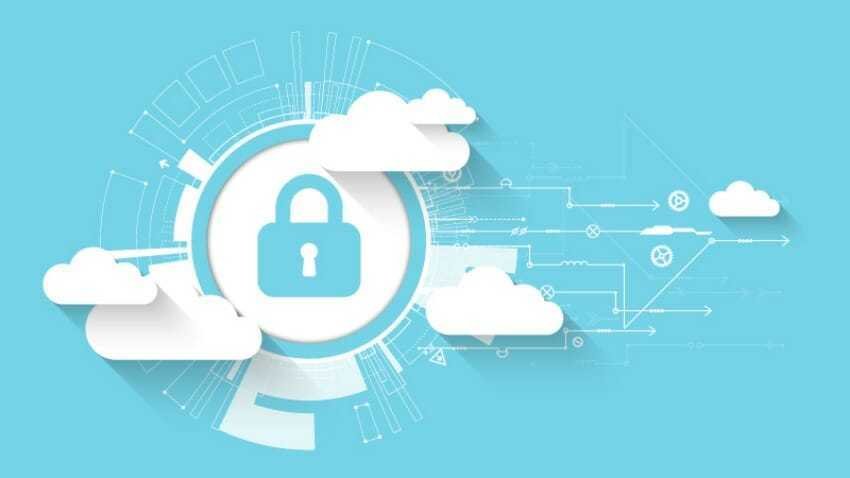Cloud: Υπάρχουν μερικοί που αποφεύγουν να βάζουν δεδομένα τους στο σύννεφο, αναφέροντας: "Η αποθήκευση στο Cloud είναι επικίνδυνη", ή "δεν υπάρχει ιδιωτικότητα στο Cloud." Φυσικά υπάρχει πάντα και η ερώτηση: "Τι γίνεται με τους hackers;"
Meanwhile, there are others, sending GBs of data to dropbox. There are tasks that are made much easier by the Cloud.
Finally, are not those who see no problem using the cloud, are they right? Are the first to be just paranoid?
Below we'll look at some valid reasons that might lead you to avoid storing data online, although it's really hard to let go of the convenience of storing copies security, but also access to our files from multiple devices.
But do we give much more than we get when we use the cloud?
Τι είναι το "Cloud";
Το σύννεφο ή Cloud, είναι ένας πολύ αμφιλεγόμενος όρος. Με μια ευρεία έννοια, σημαίνει μια web υπηρεσία που τρέχει σε κάποιον διακομιστή. Όμως ο ίδιος ορισμός θα μπορούσε να ισχύει σχεδόν για οποιοδήποτε ιστοχώρο. Όμως αναφερόμαστε σε πολλές σύγχρονες υπηρεσίες ιστού που εμφανίστηκαν την τελευταία δεκαετία. Είναι ιστότοποι που λειτουργούν περισσότερο σαν εφαρμογές που τρέχουν στον υπολογιστή σας, χωρίς να τρέχουν στον υπολογιστή σας, αλλά κάπου σε ένα "σύννεφο" υπολογιστών που βρίσκονται κάπου αλλού.
The list of cloud services includes storage providers like Dropbox and Box, specific alternatives like Google Photos and iPhotos, social networks like Facebook and Twitter, web apps like Google Drive and Office 365, streaming services like Netflix and Spotify.
So the problem with all the above services is that they are online, and that makes you depend on other computers.
Let's see what you have to think very seriously about every Cloud service:
Every energy leaves you a (?) Trace
Nothing is anonymous on the internet. To connect to the web, we use an IP address. Every webσελίδα that you visit can see this IP address. And that's not all.
Μιλάμε για πάρα πολλές πληροφορίες και δεν έχουμε αρχίσει ακόμα να μιλάμε για τις υπηρεσίες cloud. Πολλοί ιστότοποι λοιπόν, παρακολουθούν και καταγράφουν αυτές τις πληροφορίες χρησιμοποιώντας cookies. Χάρη στα cookies, μπορούν να "διαβάσουν" ποια μέρη έχετε επισκεφθεί στον ιστό ακόμα και αν εσείς θεωρείτε ότι "κυκλοφορείτε" ανώνυμα. Με την δημιουργία ενός μόνο λογαριασμού (κάτι που σχεδόν κάθε υπηρεσία Cloud το απαιτεί), τα ίχνη σας στον ιστό μεγαλώνουν, αποκτούν ψευδώνυμα, κωδικούς πρόσβασης και πολλά άλλα.
Nothing you do is private
To show you a website, a server should receive specific information from you, and this information is supposed to not be stored.
When you create an account, things are changing. The entire account creation system has been built to maintain data. These data can be all the messages you've sent, the music you've heard, your credit card information, or your purchase history.
Φυσικά σε περίπτωση που "κινείστε" offline, κανείς δεν θα παρακολουθήσει μια επιστολή που έχετε στείλει στο ταχυδρομείο. Ένας ραδιοφωνικός σταθμός ίσως μπορεί να "δει" πόσους ακροατές έχει κατά προσέγγιση, αλλά δεν γνωρίζει παραπάνω δεδομένα. Όταν πληρώνετε μετρητά θα πάρετε μια απόδειξη, που είναι ανώνυμη. (Οι πιστωτικές κάρτες, αντίθετα, δίνουν πληροφορίες, είτε τις χρησιμοποιείτε online είτε offline).
Online now, an email address or a user's name may be enough to associate two different accounts. Cookies or web browsing history (which some browsers synchronize online) can testify to your identity. You may be surprised to find out how easy it is to know who you are and what you are doing.
We all have a data profile
The information we have on the internet is bought and sold regularly. Facebook, for example, not only uses the data it collects from the use of its services or cookies to track us on the web. The company also buys information to fill the gaps it has for us. This is because the goal of each business is to know as much as possible about its customers. So he is able to better target.
Of course, this information is not only of interest to the company that collects it, and it is not only collected by companies. Law enforcement, intelligence agencies, hackers and many others seek information, through legal or illegal means, to learn more about us. Last year we saw them leverage Facebook's business strategy to target voters and manipulate America's elections.
Facebook, Twitter, Amazon, Google or Dropbox store different details for each of us. One who has access to all this information can understand where we live, where we go, who we like, what we eat, what we buy, what credit cards we use and when.
Of course there are many who have no problem if Google knows every application they have installed on their phone, but I do not know if they would be happy if this happened to the tax office.
The Terms of Service may change
With the world we face face to face, we expect others to keep their word. With online companies the relationship is impersonal, and we only have the terms of service, which all state that the company reserves the right to change them at any time.
That would not be right in our personal relationships. If you sign a contract, you know what to expect. The same applies when you rent a car, pay for repairs or hire someone.
This expectation disappears with the boot of the computer. The end user usage terms that accompany most of the non-free apps and service terms required by any online service are not static. They can change at any time.
Cloud: The future is uncertain
Do you use your smartphone as a camera? Are you automatically uploading your photos to Google Photos?
Google is an advertising company. Provides free services in exchange for collecting data that helps it better understand end-user habits in order to serve appropriate advertisements. But the kind of data it collects has nothing to do with the information a magazine has, which only knows our home address.
Google knows every search we visit, every site we visit, every contact to which we have sent an email, and the content of all these messages (metadata only).
Τι θα κάνει η Google με αυτά τα δεδομένα; Ας δούμε πως ξεκίνησε....
Years ago Google was primarily a search engine that used our data to display better results. It was then extended to email, and now uses our data to organize our inbox, block spam, and try to predict our responses.
With YouTube, Google uses our data to show us videos that we believe we like. This filtering can limit who we are and what we want. It can lead us progressively to see only what companies want. Of course, this same behavior already has an impact on elections around the world.
The company wants us to sit in cars without a driver. Once this technology is ready, you can expect to see Maps integration as well. What will Google do with all this information it collects from each of our trips? What about the information we store in Google Drive? What will happen in the future when it decides to expand to another industry?
We are not just giving our own data
Do you have a child with a smartphone? Google knows this. Do you upload photos to relatives? Each photo uploads automatically to Google's servers, yes the same company that has your child's data. The search company that is no longer just a search company, using face recognition technologies, and its algorithms has concluded your relationship with your child or relatives.
Your child is already online, has a profile and is tracked without your consent.
Third-party tracking is not just about kids. You may not even have a Facebook account, and someone is uploading a photo with you. A tag arrives for the company to get the first information about you. Your face will begin to exist in a database.
What can you do;
In some cases, you can not do anything. You do not control whether a friend uploads you a photo to a service you do not use.
Data breaches happen, and if you have not it would be good to wait for it. It is the natural consequence of data storage in third-party services. Hackers will be more interested in a dump containing millions of accounts than attacking a single computer. So it's a way to reduce the chance of something ugly happening is to avoid cloud services as much as possible.
If you still have to use a cloud service, try using products from companies you can trust, although it's not that easy to identify. You should do some research. The Electronic Frontier Foundation, which supports our online political rights can give you some ideas. Personally, I like companies using free and open sources because this is a sign of not trying to hide what they are doing. At the very least, take a look at the terms of service prior to accepting.
Of course even if you manage to avoid all Cloud services and if you have never created an online account, that does not mean they are not watching you. Some internet service providers are adapting their business model to keep track of what their customers are doing to be able to sell this information.
Ultimately, not using these services (when we have the option) is the clearest message we can send.





